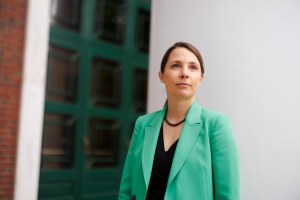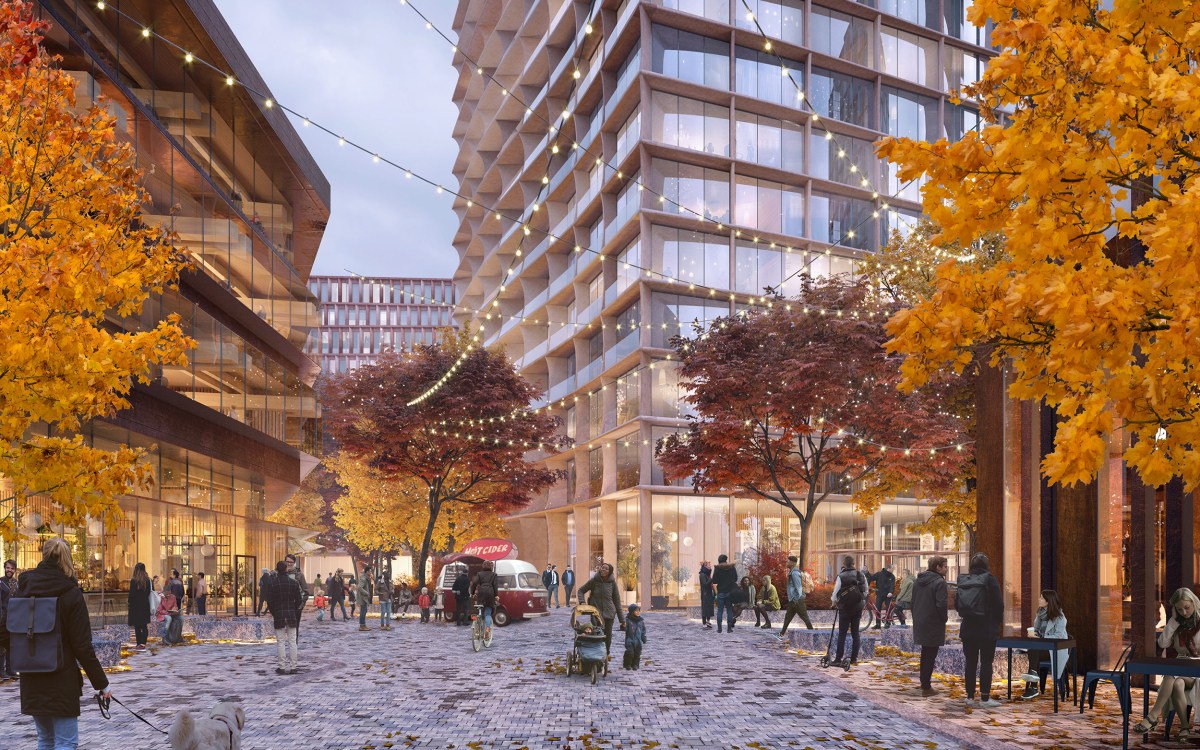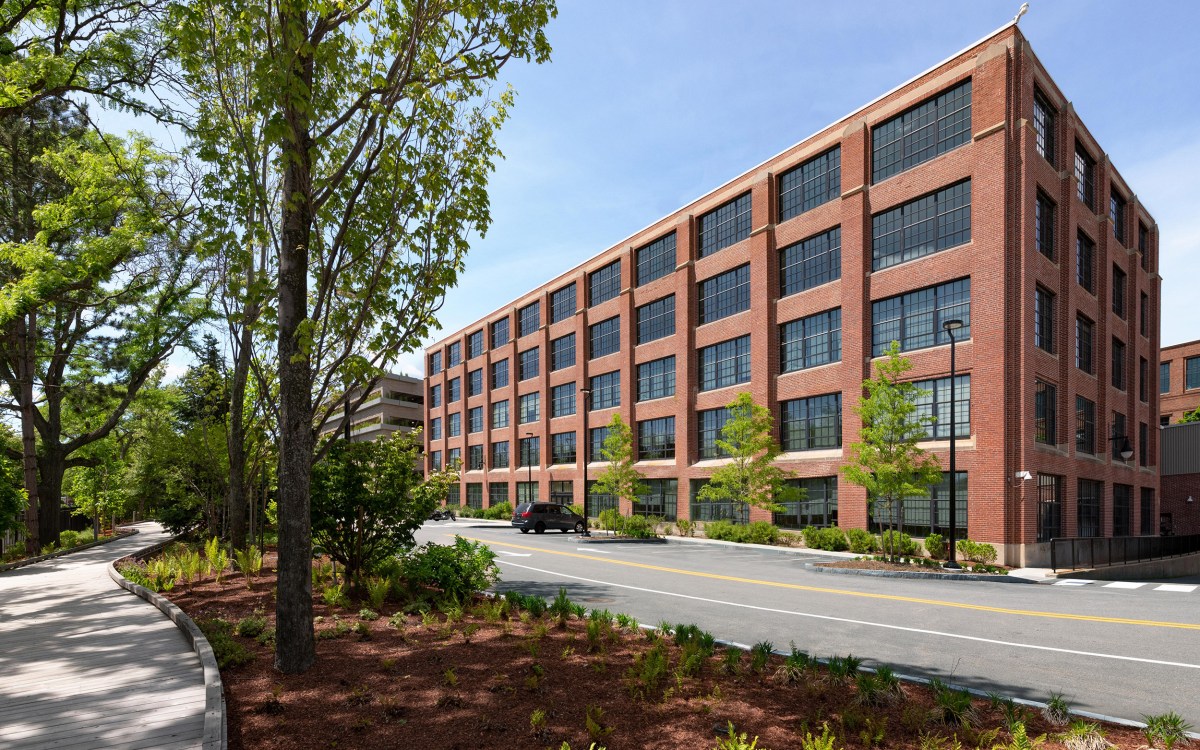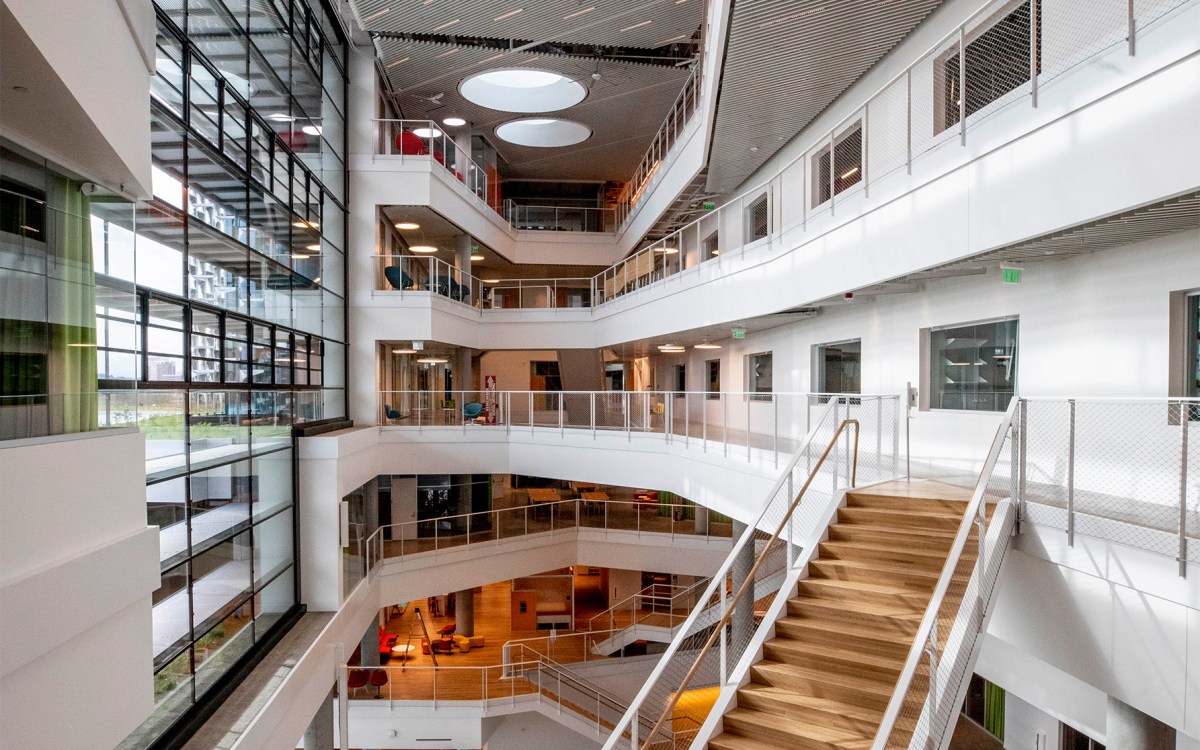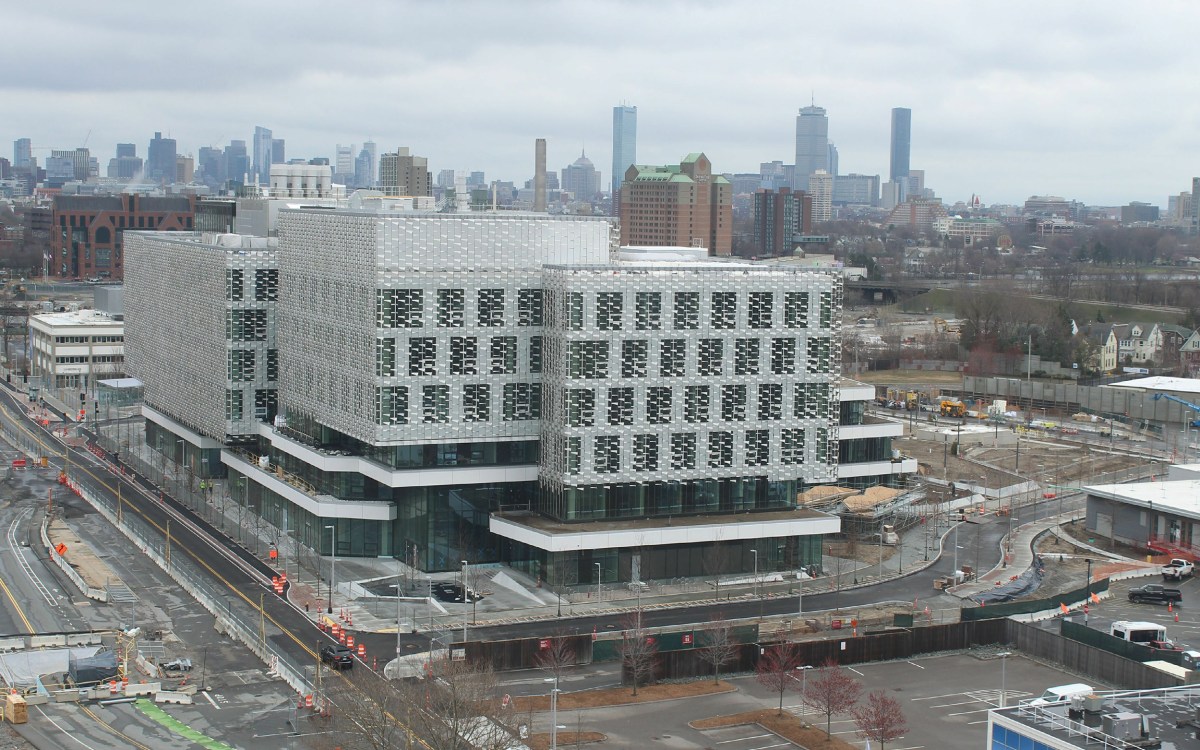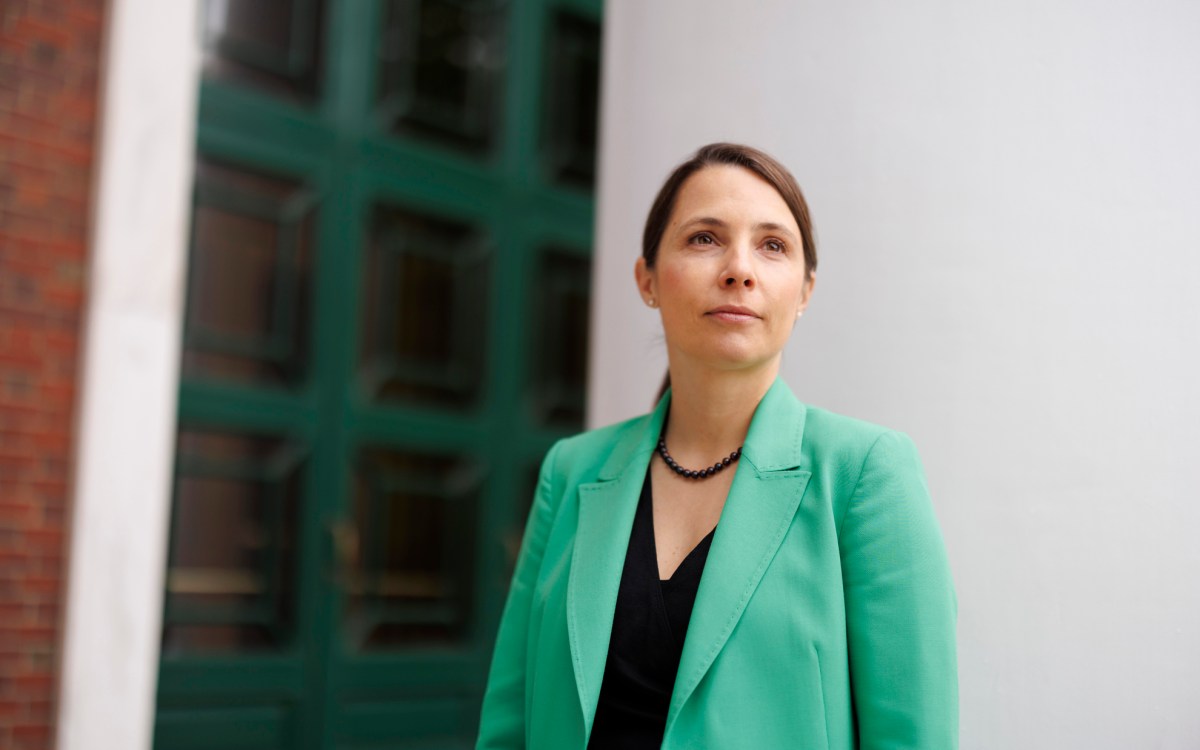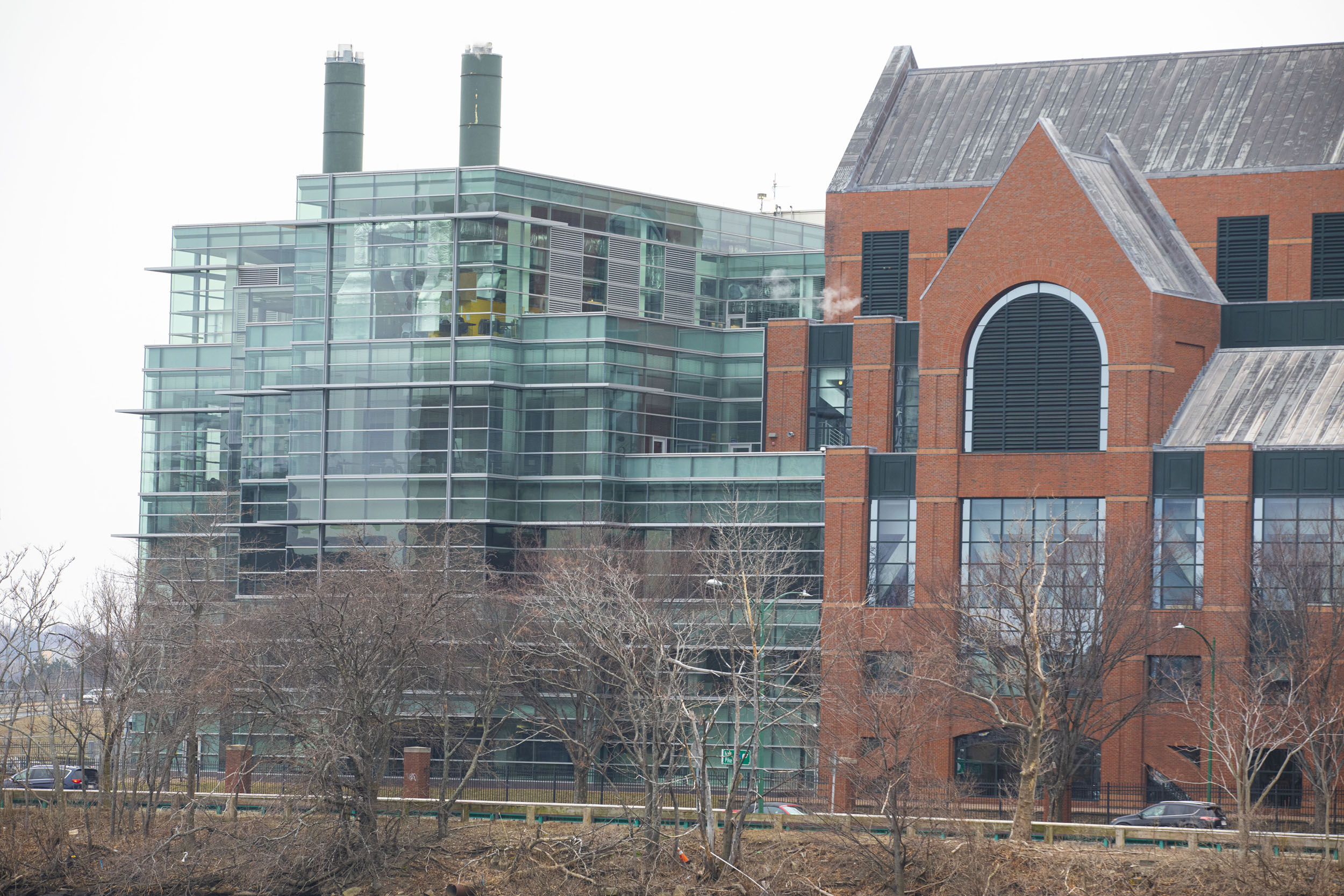
National Resilience, a new life sciences startup, will take over the lease on the Sanofi Building, the former Genzyme plant on Soldiers Field Road in Allston.
Kris Snibbe/Harvard Staff Photographer
Fast-growing life sciences manufacturing startup settles into Allston
National Resilience takes over Genzyme/Sanofi building
The life sciences innovation community that Harvard is building on its Allston campus gained another member last month, as the fast-growing manufacturing startup National Resilience Inc. agreed to take over the lease for the Sanofi building on Soldiers Field Road.
More like this
The company, founded in November, has raised more than $800 million in capital and agreed to assume the lease on the building, a former Genzyme manufacturing plant built in 1991. The facility sits on Harvard-owned land across from Harvard Business School’s One Western Avenue graduate residence.
Resilience was founded by a team that included several pharmaceutical executives, politicians, scientists, venture capitalists, and a former FDA commissioner to bolster the pipeline that enables the manufacturing of breakthrough treatments — including some for COVID-19 — enabled by the ongoing life-sciences revolution.
“We have a concentration of incredible workforce and intelligence in that area,” said Ryan Flinn, Resilience’s head of communications. “This is really part of the community. We’re looking to expand what is produced there, bringing on more business and hiring more people.”
Harvard Provost Alan Garber said he was pleased that the Sanofi facility would continue operating — Resilience has offered jobs to all 250 of the plant’s current employees and will continue ongoing Sanofi projects there for the immediate future — and add another player to the area’s already rich life-sciences scene.
“With its veteran leadership, investors, and advisers, National Resilience brings to Allston an ambitious approach to developing and manufacturing novel therapeutics,” Garber said. “It will complement and contribute to the vibrant ecosystem of universities, research institutions, academic hospitals, and biotechnology companies in the Boston area that attract and recruit top students, faculty, and researchers from around the world. Together we are advancing the frontiers of research and developing life-changing therapeutics.”
Richard McCullough, Harvard’s vice provost for research, said the company’s location puts it close to several Harvard organizations that focus on life sciences, with which it could potentially collaborate. It abuts the planned Enterprise Research Campus (ERC) on Western Avenue, which is envisioned as a mixed-use development that will house commercial tenants focused on innovation. ERC first-phase developer Tishman Speyer took initial regulatory steps toward developing the innovation district last month, filing a project notification form with the Boston Planning and Development Agency. Harvard’s Innovation Lab, Pagliuca Harvard Life Lab, and Launch Lab are all located nearby, as is the newly opened Science and Engineering Complex, which will house faculty and researchers from the Harvard John H. Paulson School of Engineering and Applied Sciences, and Harvard Business School itself. In addition, the new center for advanced biological innovation and manufacturing is moving ahead with plans for opening in its Watertown facility in 2022.
McCullough said the region’s ability to attract companies like National Resilience and others shows not only the economic promise of continued innovation and investment in the life sciences, but also their growing potential to help patients.
“We have open arms and look forward to working together to continue to make Boston the greatest life-science ecosystem on the planet,” McCullough said. “We’re thrilled that National Resilience is moving in and shoring up the amazing innovation and biological manufacturing community, which is an important part of curing disease and helping patients.”
Flinn said that the proximity to Harvard and Greater Boston’s broader life-sciences environment is key. The company, he said, is eager to take advantage of the region’s brainpower and, in return, help bring promising ideas to market.
“I think the environment is certainly critical, being in this hub of biotech, not just Boston in general but being around all the researchers, at Harvard in particular,” Flinn said. “Patients are in need and if we can help bring more medicines to the market through collaborations with the community and Harvard, everyone benefits.”

